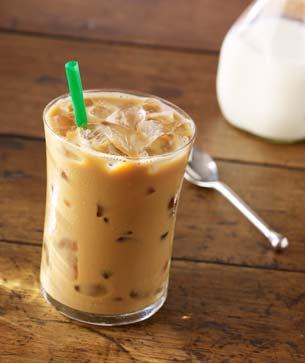
The idea of using caffeine to improve workout performance is hardly new. For more than a hundred years scientists have been studying the way the compound (considered the most widely used drug in the world) affects athletes. But lately there’s some surprising new evidence that while caffeine works wonders, it’s not in the ways or amounts you might think. Here’s how.
1. You don’t need a lot to get a good response. Although early research had athletes taking up to 13 mg/kg of body mass (that’s 884 mg for a 150-pound person, or about 12 shots of espresso!) new studies show you’ll get a boost from as little as 1-3 mg/kg of weight (68-204 mg of caffeine), or about the amount in a small to large drip coffee. Even at that level, research shows performance during endurance exercise can improve by 20 to 50 percent compared to a control group. And among world-class cyclists (where as little as 1 percent improvement in performance can be the difference between winning and losing) a 100-mg dose improved performance by 4 percent; a 200-mg dose improved it by a total of 8 percent.
2. It works for lots of different types of athletes—but not all. Hundreds of studies document the speed and endurance benefits of caffeine for cyclists, runners, and rowers. Even tennis players were found to improve hitting accuracy, speed, and agility when they caffeined up before hitting the court. But there’s been little evidence that caffeine can help sprinters, and in fact some research shows that with very-high intensity sprints (20-30 seconds) there’s actually a decrease in performance.
3. It’s an awesome painkiller. Experts used to think using caffeine somehow spared muscle glucose but now the evidence points squarely to its effect on the nervous system. “It’s as if you snipped the fibers in the muscles that tell the brain how tired you feel,” explains Lawrence Spriet, Ph.D., a professor of exercise physiology and the chair of the Human Health and Nutritional Science program at the University of Guelph, Canada. Numerous studies show caffeine also lowers perceived exertion, or how difficult an exercise feels—so you can work longer and harder without feeling as worn out.
4. It works even if you’re already addicted to your morning Joe. “The effects between users and nonusers is really quite small,” says Spriet. If you want to maximize the response, you can consider skipping your a.m. pick-me-up for a day before the event but beware the withdrawal symptoms (headache, nausea, and a big case of crabbiness.)
5. It’ll give you a bigger boost if you take it mid-way through your race. “The classic caffeine dosing used to be 45 to 60 minutes before an event, but that’s not always the rule,” says Spriet. Since many athletes are pumped with adrenaline at the start of a race, getting that caffeine jolt isn’t quite as important early on. “If you take it half- or midway through, it can help get you through those last few miles.”
6. It won’t make you dehydrated. Nutritionists used to preach that coffee, colas, and other caffeinated fare were diuretics. Not true, says Spriet. “That’s pretty well been laid to rest. If you drink a lot of water, you’ll pee more. If you drink a lot of a beverage with caffeine, you’ll pee just as much.”
7. It can be taken in many forms. For athletes, the simplest way to get caffeine pre-event is usually in a beverage (like coffee, tea, or cola) and mid-event through products like energy gels, chews, bars, and drinks. There’s even caffeinated gum and a host of beauty products like soap, bubble bath and breath spray. “Form doesn’t seem to really matter, although absorbing it through the skin probably isn’t as efficient,” says Spriet.
8. But avoid energy drinks during your workout or race. “We don’t usually recommend them because they have a high level of carbohydrates, which can interfere with how efficiently water gets absorbed into your system,” says Spriet. A drink like Red Bull, for example, is typically 12 percent carbs, while a beverage like Gatorade is only about 6 percent. “The minute you start adding carbs you slow down hydration, and ultimately that will have a much bigger effect on performance than caffeine.”
9. It’s not for everyone. In some people, even small amounts can cause headaches, dizziness, GI distress, nervousness and anxiety. And in high doses almost all of us will get these side effects. “Some people can only take a little and some a lot—you have to experiment to see what’s right for you. It’s extremely personal,” says Spriet.

took a 100mg of caffeine gel before my tempo this morning, 9k in 32:37, felt great!
ReplyDeleteHad a coffee with my cigarette this morning, but my run was still crappy. Will try two cups tomorrow. Maybe Guy Lafleur was blessed with better genetics than me.
ReplyDelete